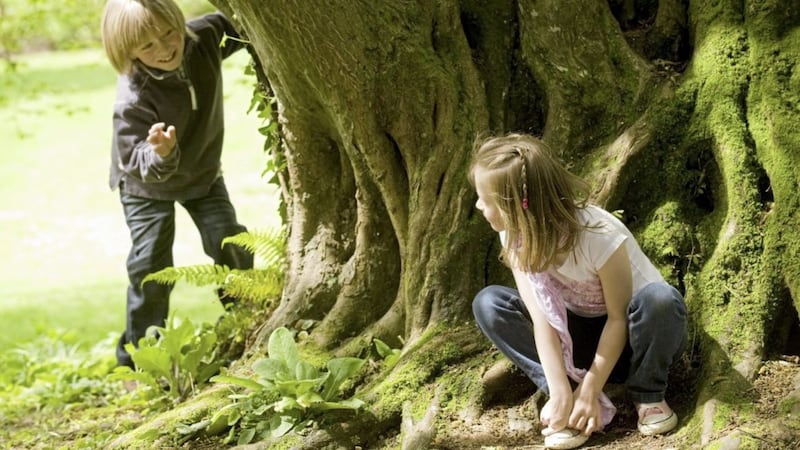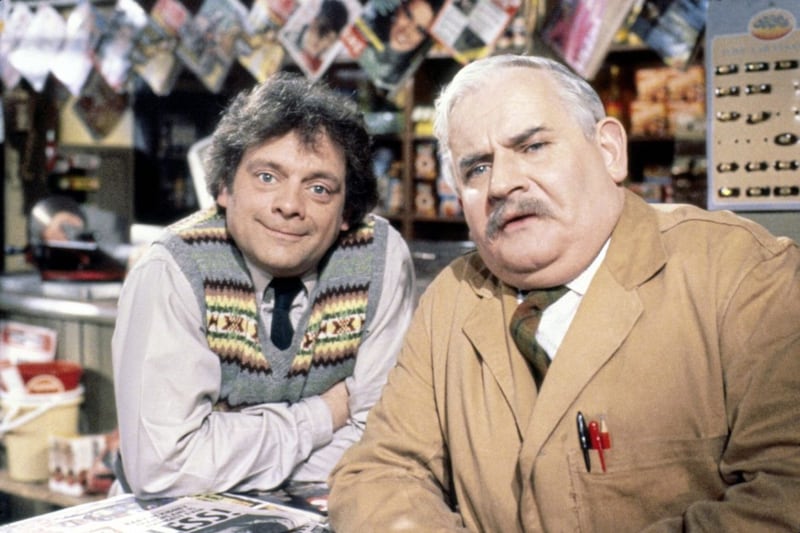I notice in passing on a mid-morning bus to Belfast, primary school pupils out for morning break in the playground, swaddled like Russian dolls in their duvet coats, carefully minded by a couple of classroom assistants - a few running or kicking a ball round a small tarmacked yard with a high fence, but most of them just standing about.
And if it's wet they aren't out at all. And I think of school breaktime when I was their age and us streaming out into a big playground that was just beaten earth, ideal for digging your heel in to make a cup for a game of marleys.
Bounded by trees - a magnificent chestnut where, in autumn, the bigger boys stoned the chessies down for conkers; the crooked hawthorn that was a rite of passage - could you hang by your knees from its one horizontal branch? We ate the new hawthorn buds, green and sweet.
Regularly as clockwork came the seasonal games - marbles, skipping, hopscotch and ball games.
A bigger girl would take you under her wing and teach you to skip. They were playground idols who could skip through two ropes twirled in opposite directions.
The gable wall was their territory where they tutored us in complicated ball games - in my case with not much success. I never got the hang of three-ball-bouncy.
We did not do PE. The village had a formidable and successful cricket team and the next generation were being trained to succeed them, so it was rounders for the younger ones and cricket for the older - with a real cricket ball.
Lunchtime was our finest hour. We were free to roam anywhere within a whistle's blow and spent our time boiling spuds in a paint-can over a twig fire, collecting sticklebacks and frogspawn in jam jars and trying to catch young elvers in the shallows of the River Faughan.
We went exploring through an historic wood, coming suddenly upon a clearing where, under the exposed roots of an ancient tree, a stone slab created a kind of table. It was a scene straight from Tolkien or CS Lewis.
Awestricken without quite knowing why, we stood our ground in silence, then turned tail and fled. It was, of course, a Mass rock from the penal days.
Snow was our chief delight. The grey light thickened at the high classroom windows.
On pretext of going to the toilet at the bottom of the yard, Jimmy reports, "Sir - it's lyin'."
Cue exodus to the playground, where we slid and snowballed and soaked ourselves and were put to steam in groups of five round the classroom fire.
We were the last generation to enjoy such autonomy and freedom. What did we learn from it?
The ability to calculate risk, to follow our instincts, resourcefulness, bravery, mutual trust and independence.
Yes, we were a bruised and scabby crew, but how we relished our liberty.
There's no greater incentive to learning to ride a bike than being set upon an old boneshaker and launched down a potholed country lane toward the inevitable bed of nettles.
I went home dyed green with docken juice - but I could ride a bike.
We were all about 10 or 11 and childhood boredom hadn't been invented.
I wouldn't have missed such a childhood for anything.
Yes, it was a safer society when children were treated as apprentice adults and taught to know their place, and child-rearing wasn't such a labour-intensive lifetime job as it appears to be now.
Today's children live sanitised, supervised lives, rarely exposed to disappointment.
I spent a teaching lifetime in primary education watching 'elf 'n' safety' morph from commonsense to obsession and political correctness to the point of idiocy.
How can children learn to handle risk if they have never met it? How can they develop instinctive judgment when they have instinct bred out of them and never made an independent decision?
Why does the number of first year university drop-outs increase year on year?
They cannot cope because they have little experience of coping and an inflated sense of entitlement.
Ironic that we've christened them the 'snowflake' generation when they were never actually allowed out in it.








